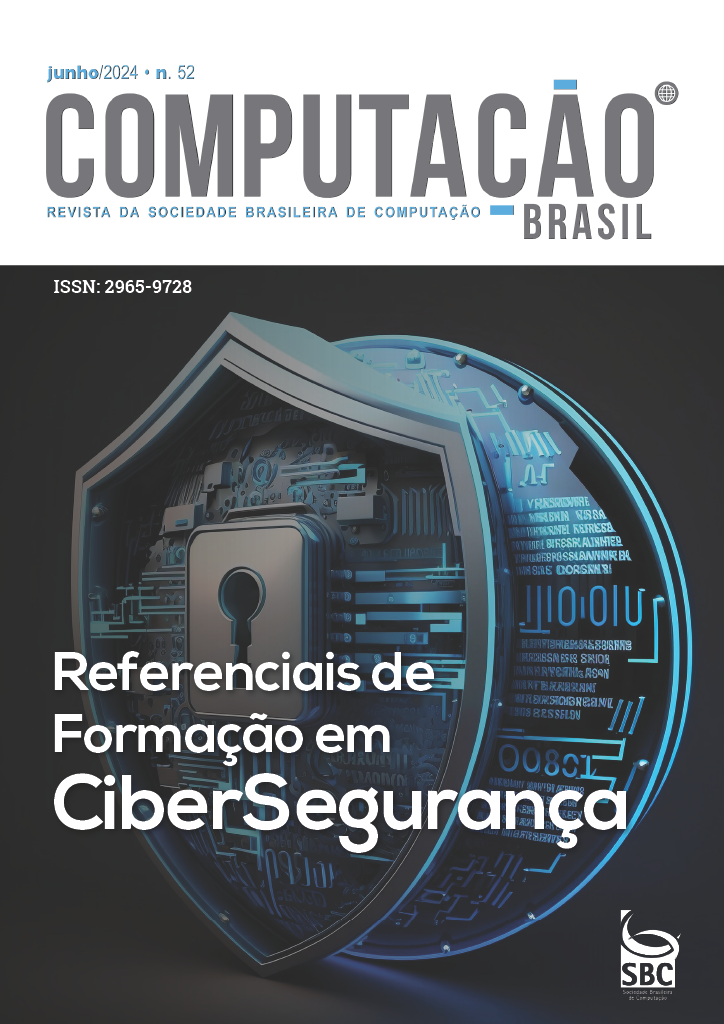A Segurança de Software necessita de atualização quando confrontada com a realidade da aprendizagem automática distribuída?
DOI:
https://doi.org/10.5753/compbr.2024.52.4601Keywords:
Aprendizado federado, ataques ao aprendizado de máquina, segurança de softwareAbstract
A aprendizagem federada (FL) é uma técnica promissora de aprendizagem distribuída para treinar modelos em vários dispositivos sem compartilhar dados e manter a privacidade. No entanto, ela enfrenta desafios de cibersegurança, como ataques de envenenamento de dados e modelos. Esses ataques comprometem a integridade e a privacidade dos dados. Estratégias de atenuação, como filtragem de dados e privacidade diferencial, são essenciais para a proteção de aplicativos de ML. Integrar o conhecimento dessas ameaças nos currículos de segurança de software e prover experiência prática para os alunos são fundamentais para a preparação dos estudantes para o mercado. Ferramentas como o FedML e o FADO facilitam a experimentação e o teste de mecanismos de segurança no domínio de ML, contribuindo assim para uma melhor compreensão das vulnerabilidades e contramedidas de segurança.
Downloads
Referências
Bukaty, P.. The California Consumer Privacy Act (CCPA): An implementation guide. IT Governance Publishing, 2019
Fang, M., Cao, X., Jia, J., Gong, N.. Local model poisoning attacks to Byzantine-robust federated learning. USENIX Conference on Security Symposium, 2020
European Parliament and Council of the European Union, General Data Protection Regulation, 2016
Han, S., et al. FedMLSecurity: A Benchmark for Attacks and Defenses in Federated Learning and Federated LLMs, arXiv:2306.04959, 2023
Kairouz, P., et al., Advances and open problems in federated learning. Foundations and Trends in Machine Learning, 14(1-2):1–210, 2021
McMahan, H., Moore, E., Ramage, D., Hampson, S., Arcas, B.. Communication-efficient learning of deep networks from decentralized data. International Conference on Artificial Intelligence and Statistics, 2017
Rodrigues, F., Simões, R., Neves, N., FADO: A Federated Learning Attack and Defense Orchestrator, Workshop on Dependable and Secure Machine Learning (DSML), June 2023.
Sociedade Brasileira de Computação, Referenciais de Formação para o Curso de Bacharelado em CiberSegurança, 2023
Tolpegin, V., Truex, S., Gursoy, M., Liu, L.. Data poisoning attacks against federated learning systems. European Symposium on Research In Computer Security, 2020
Yue, K., et al., Gradient Obfuscation Gives a False Sense of Security in Federated Learning, USENIX Security Symposium, 2023
Zhang, Z., et al., Neurotoxin: Durable backdoors in federated learning. International Conference on Machine Learning, 2022
Downloads
Published
Como Citar
Issue
Section
Licença

Este trabalho está licenciado sob uma licença Creative Commons Attribution-NonCommercial 4.0 International License.


